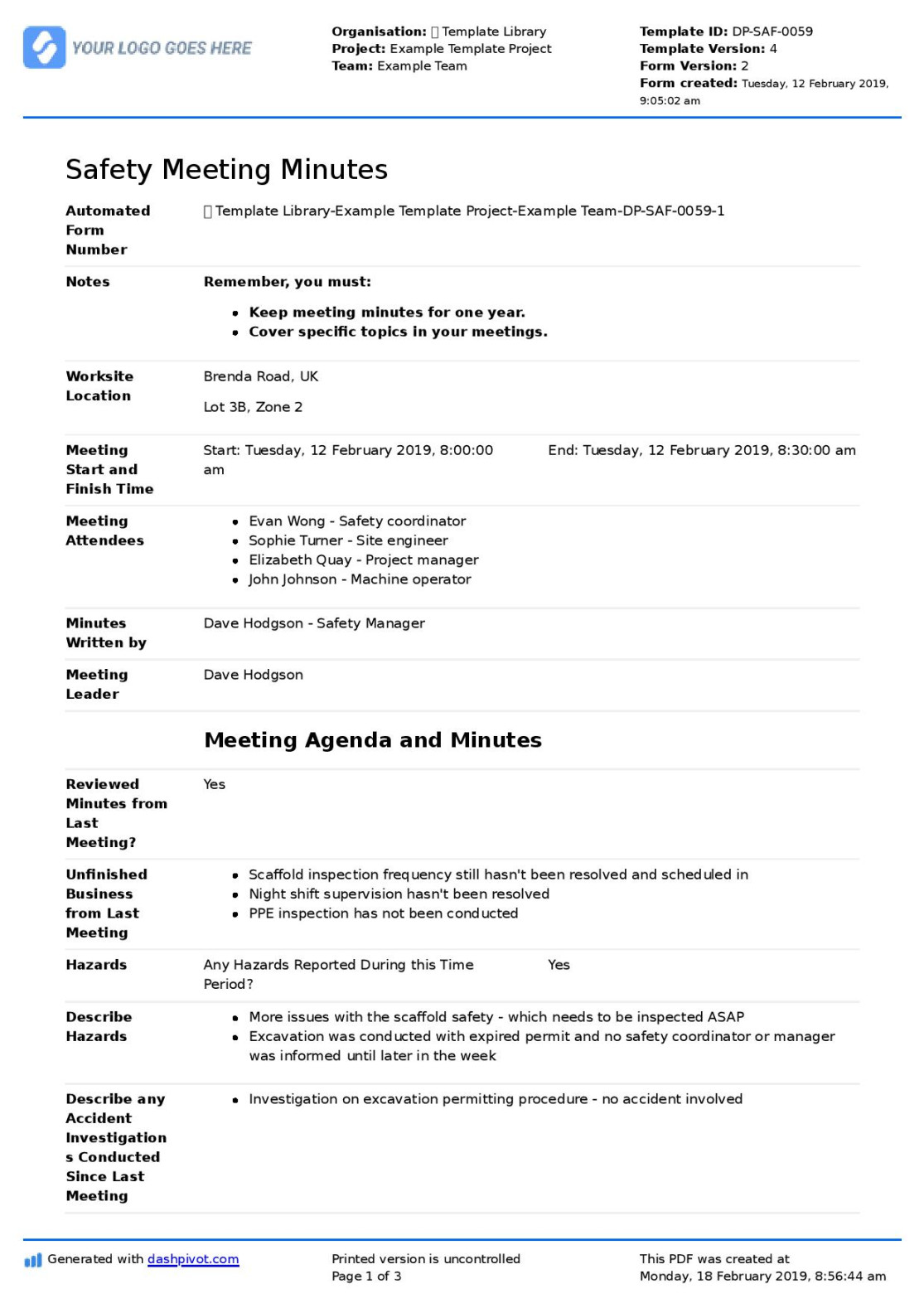Safety meeting minutes are crucial documents that record the proceedings, decisions, and action items of safety meetings. They serve as a reference for future discussions, compliance audits, and legal purposes. A well-structured template can enhance the efficiency and effectiveness of safety meetings.
Template Structure

A typical safety meeting minutes template includes the following sections:
1. Meeting Information
Date: The date of the meeting.
2. Meeting Objectives
Purpose: A brief statement outlining the primary goals of the meeting.
3. Meeting Summary
Key Discussions: A concise summary of the main points discussed during the meeting, including any significant debates or disagreements.
4. Next Steps
Follow-Up Actions: A brief overview of any planned follow-up activities or meetings.
Design Elements for Professionalism
To convey professionalism and trust, consider incorporating the following design elements into your safety meeting minutes template:
1. Consistent Formatting
Font: Use a clear and legible font, such as Arial, Times New Roman, or Calibri.
2. Clear and Concise Language
Avoid Jargon: Use plain language that is easy to understand for all attendees.
3. Effective Organization
Headings and Subheadings: Use headings and subheadings to divide the template into clear sections.
4. Professional Layout
Logo: Include your company’s logo at the top of the template to enhance brand recognition.
5. Consistent Branding
Colors: Use colors that align with your company’s branding guidelines.
By incorporating these design elements, you can create a safety meeting minutes template that is both professional and informative, fostering trust and credibility among meeting attendees.